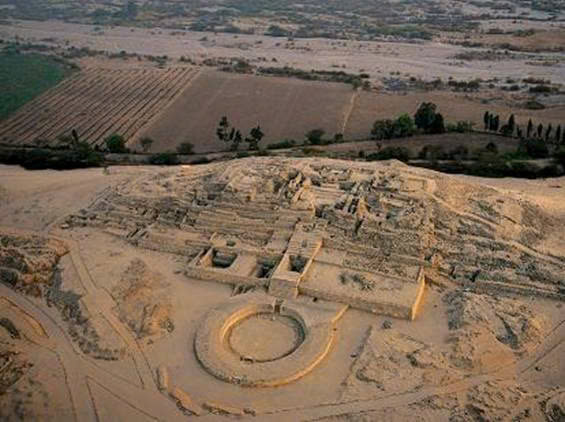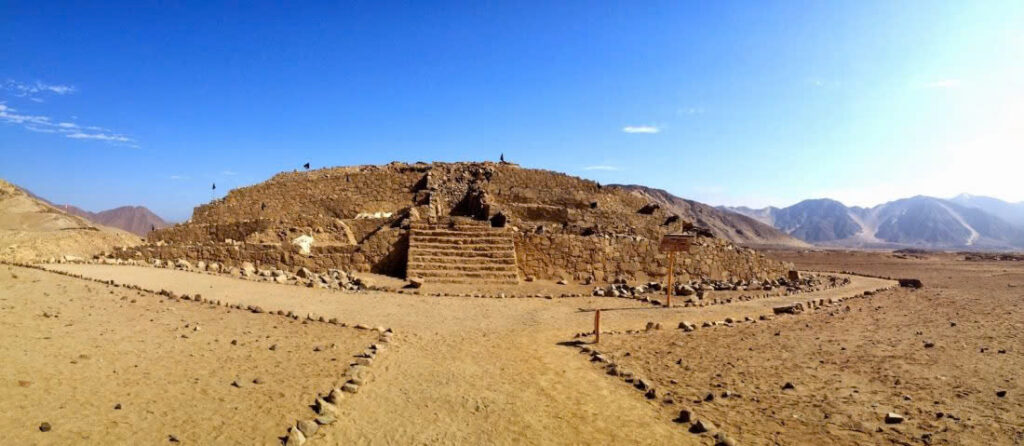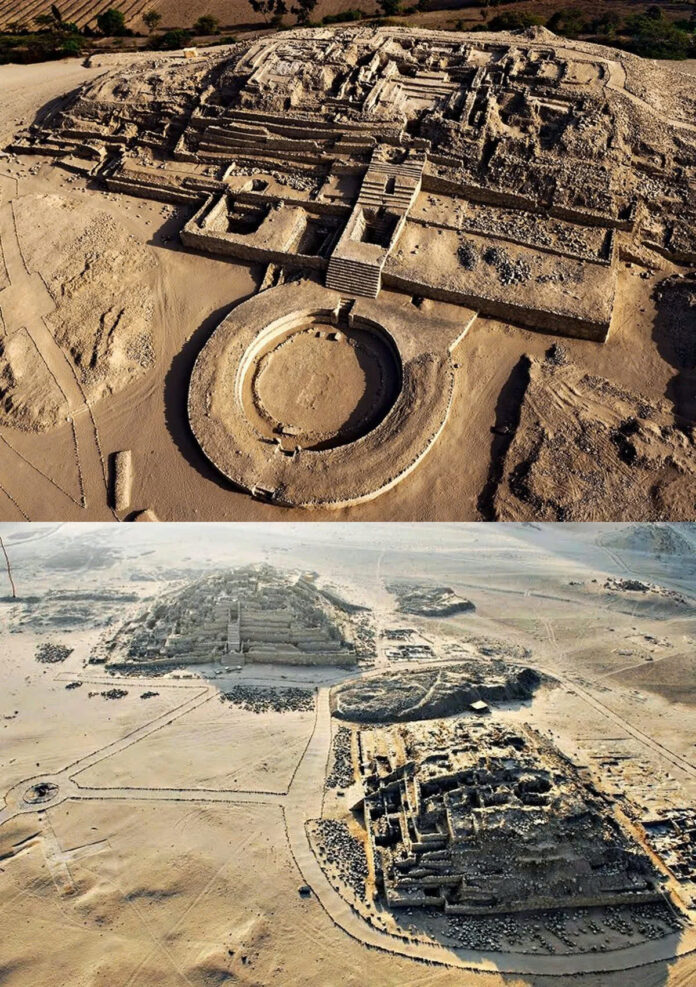Uncovering a Lost Civilization

In the arid deserts of Peru, overlooking the lush Supe River valley, lies a hidden gem of ancient history – the Sacred City of Caral-Supe. This 5000-year-old archaeological wonder, only discovered in 1948, is reshaping our understanding of early American civilizations.
A Cradle of New World Civilization

Caral-Supe isn’t just old – it’s ancient. Dating back to around 2600 BC, this complex of pyramids and sunken circular courts rivals the age of Egypt’s first pyramids. Archaeologists believe it to be one of the most sophisticated early urban centers in the Western Hemisphere.
Pyramids to Rival Egypt

The centerpiece of Caral-Supe is the Pirámide Mayor, a massive structure nearly 100 feet tall with a base the size of four football fields. Radiocarbon dating places its construction alongside the Step Pyramid of Saqqara in Egypt, making it one of the oldest known pyramids in the world.
A Peaceful Society Built on Trade
Unlike many ancient sites, Caral shows no signs of warfare. Instead, evidence suggests a society focused on commerce and cultural development. The discovery of quipus – an ancient record-keeping system later used by the Incas – highlights Caral’s influence on later Andean cultures.
A Legacy Preserved

In 2009, UNESCO recognized the significance of Caral-Supe by declaring it a World Heritage Site. Its well-preserved architecture and urban planning provide invaluable insights into Late Archaic societies and their impact on subsequent Andean civilizations.
Rewriting American History
The Sacred City of Caral-Supe and the surrounding Norte Chico region are forcing archaeologists to reconsider the timeline of civilization in the Americas. This advanced society flourished over 4,000 years before the rise of the Incan Empire, challenging our perceptions of early American cultures.

As excavations continue, the Sacred City of Caral-Supe stands as a testament to the ingenuity and complexity of ancient American civilizations, inviting us to marvel at the achievements of our distant ancestors.

